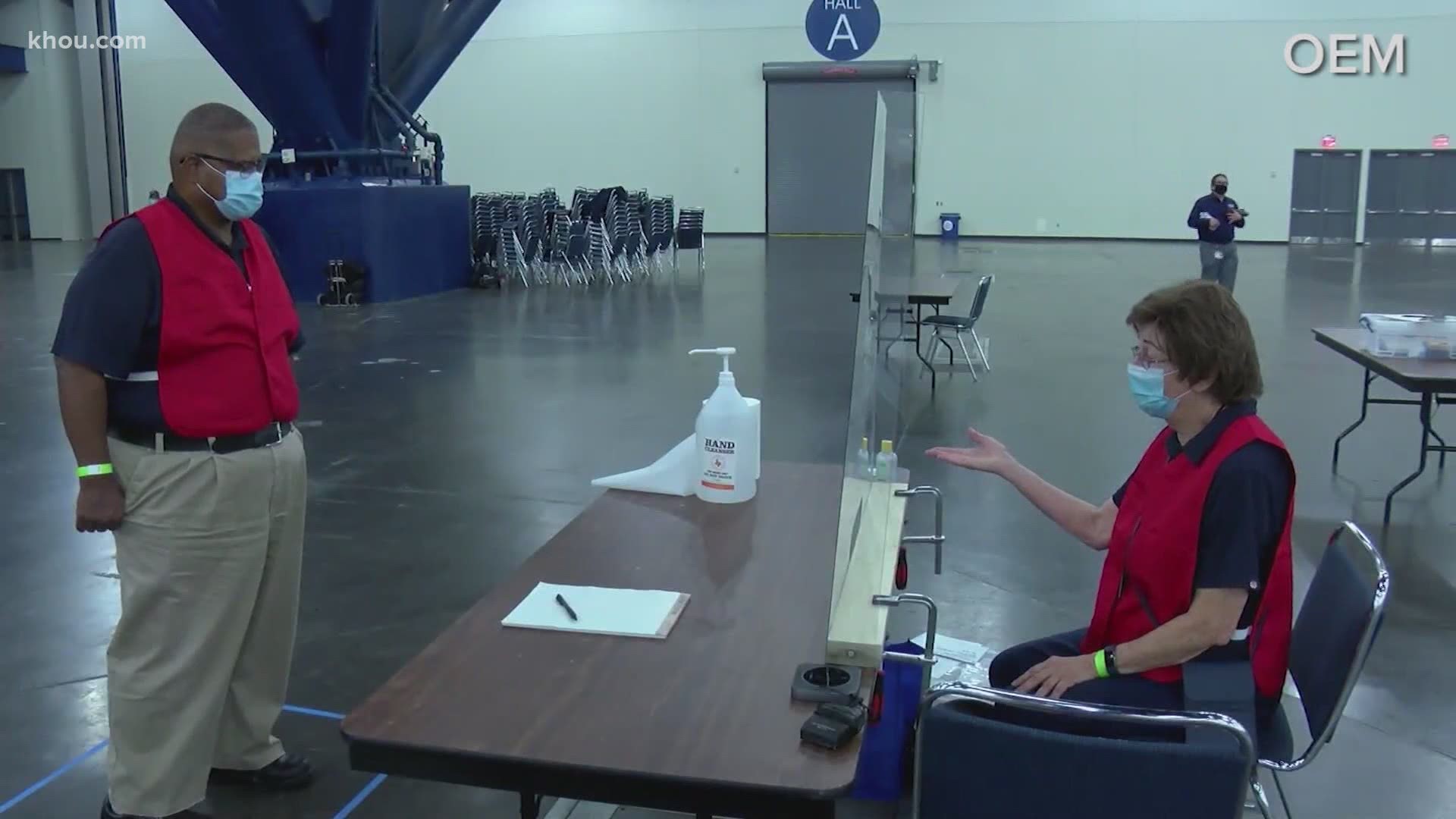The National Weather Service issued a tropical storm watch for Montgomery, Liberty, Harris and Galveston counties Monday afternoon.
A hurricane watch was issued for from Port Bolivar, Texas, to west of Morgan City, Louisiana.
Harris County Judge Lina Hidalgo and Houston Mayor Sylvester Turner said Monday the city and county have spent weeks preparing for the possibility of a hurricane.
With the threat of Tropical Storm Laura making landfall in Texas, they urged Houston and Harris County residents to do their part to get ready.
“We’re leaving no stone unturned with preparation, and now it is the community’s turn," Hidalgo said at a Monday afternoon news conference. "Everyone should be making preparations for a possible hurricane. Time, right now, is the most precious resource, so let’s not waste it.”
It's still too soon to say where Tropical Storm Laura will make landfall but forecasters say it could be a Category 2 hurricane with a dangerous storm surge.
“Depending on where it goes, it could have minimal impact on our region or it could have significant storm surge,” Hidalgo said.
That would mean coastal communities would likely evacuate. Galveston has already issued a voluntary evacuation for low-lying areas.
Seniors or disabled people who need help evacuating can call 211.
Judge Hidalgo says Red Cross is ready to open shelters with COVID-19 precautions, if necessary.
Mayor Turner urged Houston residents to stay off the roads Tuesday into Wednesday to make room for potential evacuees.
He's also reminding people to tie down or bring inside any objects around the house that could go flying in the wind.
“This has been an incredible year and we’ve been through so much but I believe people are prepared to do what we need to do to get us through," Turner said. “Put some patience in your hurricane kit, and then add a little bit of faith, do a little bit of praying that it kind of stays to the east, and then I think your hurricane preparedness kit will be complete.”
Tropical Storm Laura's track is still in limbo. The center of the forecast cone is now in western Louisiana, but Houston is in the cone's far western edge.
This storm has been very difficult to forecast, so it can easily shift and should be watched closely. It is still expected to pick up steam as it moves across the warm waters of the Gulf of Mexico on Tuesday.
Gov. Greg Abbott on Sunday declared a state disaster to assist Texans affected by the storms. Abbott announced Monday morning that FEMA had approved the declaration.
The state disaster declaration was issued for 23 counties, including all coastal surge counties, plus Bexar County, which will be for staging and sheltering.
The following counties are included in the disaster declaration: Aransas, Bexar, Brazoria, Calhoun, Cameron, Chambers, Galveston, Hardin, Harris, Jackson, Jasper, Jefferson, Kenedy, Kleberg, Liberty, Matagorda, Newton, Nueces, Orange, Refugio, San Patricio, Victoria, and Willacy
Before the storm
- Make a home inventory
- Have a current copy of your declarations page that has your policy number and your agent's number
- Review your policy with your insurance agent to determine if you have adequate coverage
- Repair loose boards, shingles, shutters and downspouts to prevent them from becoming an issue in high winds or torrential rain
- Have an evacuation plan, and include plans for your pets
- Make sure your emergency equipment is in working order, including a battery-powered radio, flashlights and extra batteries.
- Also, make sure to gather all medicine and replenish your first-aid kit
- Stock a week's worth of non-perishable food and water
- Your hurricane kit should include face masks and hand sanitizer.
- Keep your cell phone fully charged
- Fill your car with gas
- Get some cash
- Program all emergency phone numbers
During the storm
- If you are advised to evacuate, leave as soon as possible. Retain all related receipts - they may be considered in your claim. If you aren't in a recommended evacuation and you plant to stay home, stay informed by listening to weather alerts
- Keep windows and doors closed at all time, and, if possible, board them up with wooden or metal shutters
- Stay away from the windows and in the center of the room, or, stay in an interior room
- Avoid flood water, as it may be electrically charged from downed power lines
- Check on family members and friends
After the storm
- Check to be sure your family members are safe
- If you did evacuate, wait for official notice that it is safe to re-enter your neighborhood and your house
- Document damaged property, and take photos and videos. Don't dispose of any damaged items without approval
- Keep a record of any temporary repairs or expenses to prevent further damage to your property

